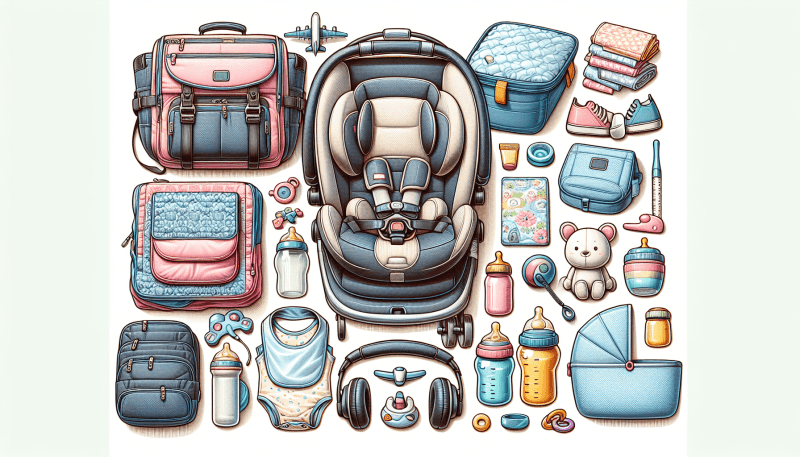Did you know 25% of new parents struggle with getting their baby to sleep? You're not alone.
We've got some tried and true methods to help lull your little one into a peaceful slumber. From feeding to burping, a warm bath to a gentle massage, we'll guide you through every step.
Let's turn those restless nights into sweet dreams, not just for your baby, but for you too.
Dive into our comprehensive guide and discover the secrets to your baby's best sleep.
Key Takeaways
- Establishing a bedtime routine is important for improving sleep quality in babies.
- Techniques such as feeding before bedtime, burping, warm baths, gentle massages, and rocking can help soothe the baby and promote better sleep.
- Additional methods like swaddling, pacifier usage, soft music, and creating a quiet sleep environment can also aid in inducing sleep.
- Balancing the baby's sleep needs with parental presence, touch, and voice is crucial for creating a peaceful sleep environment and strengthening the bond between parent and baby.
The Importance of Feeding Your Baby Before Bedtime
You'll notice a significant improvement in your baby's quality of sleep when you understand the importance of feeding them before bedtime. It's more than just filling their little tummies; it's setting the tone for a restful night for both of you. Establishing an appropriate feeding schedule isn't merely about timing, but also about creating a nurturing environment that signals to your baby that it's time to wind down and rest.
You may wonder, 'How does a feeding schedule contribute to my baby's sleep?' Well, babies thrive on routine. A predictable feeding schedule during the day helps regulate their internal clock, making it easier for them to understand when it's time to sleep. The notion of 'full belly, sleepy baby' really does hold some truth!
Night weaning, on the other hand, is a process that involves gradually decreasing the amount of feeds your baby has during the night. This phase can be slightly challenging, as it's a transition from several night feeds to sleeping through the night. You've got to be gentle, patient, and consistent.
Remember, you're not alone in this. It's okay to ask for help, and it's perfectly fine to feel overwhelmed. Parenting is a journey filled with both joy and challenges. But once you master the art of a feeding schedule and navigate the waters of night weaning, you'll experience the peaceful slumber that you and your little one deserve.
With a full belly and a warm cuddle, your baby will drift off into a sweet sleep, giving you the quiet night you've been longing for.
The Role of Burping in Baby's Sleep
You might not realize it, but burping plays a significant role in your baby's sleep. Not only can it disrupt their peaceful slumber, but mastering proper burping techniques can also lead to a more restful night for both of you.
Let's explore how burping impacts your little one's sleep and discuss some effective strategies for burping your baby.
Burping: Sleep Disruptor
Often, it's not realized how much a baby's burping can disrupt their sleep. As a loving parent, you understand the importance of establishing a consistent sleep schedule. Yet, colic issues and frequent burping can throw these plans into disarray.
-
The Disruption: Imagine your little one finally drifting off to sleep, only to be awakened by a painful burp. It's heart-wrenching.
-
The Cycle: Lack of sleep exacerbates colic issues, leading to more discomfort and, consequently, more burping. It's a vicious cycle.
-
The Struggle: You're left feeling helpless, yearning to provide relief yet unsure how.
Techniques for Effective Burping
Mastering certain techniques for effective burping reduces your baby's discomfort and paves the way for a more peaceful sleep.
Exploring different burping positions can aid in this process. For instance, try holding your baby upright or laying them face-down across your lap.
These positions help with their digestive health by allowing trapped air to escape. Be patient, sometimes burping takes time. Comfort them with gentle pats or rubs on the back, ensuring not to be too firm.
It's also crucial to remember every baby is unique; what works for one mightn't work for another.
Burping's Impact on Sleep
While it's true that burping can disrupt your baby's sleep initially, it's actually a key factor in helping them sleep longer and more peacefully in the long run. You see, burping aids in relieving gas discomfort, which could otherwise interrupt your little one's sleep.
Here are three key points to remember:
-
Sleep positions: Experiment with different sleep positions post burping. Some babies sleep better on their backs; others prefer their sides. Finding the right position can make a huge difference.
-
Night diapers: A dry, comfortable baby sleeps better. Invest in good quality night diapers that keep moisture away.
-
Consistency: Maintain a consistent burping and bedtime routine. This familiar rhythm can help your baby settle down more easily.
You're not just a parent, you're their secure comfort in the vast world they're yet to explore.
The Soothing Influence of a Warm Bath
You'll find that a warm bath has a calming effect, acting like a sleep-inducer for your little one. Bath temperature control is key in this process. It's about finding the perfect balance of warmth, not too hot nor too cold, just a comforting embrace that envelops your baby, lulling them to a state of tranquility.
Investing in an accurate thermometer is smart, ensuring the water temperature stays in the ideal range of 37 to 38 degrees Celsius. You're making bath time a soothing experience and taking care of your baby's delicate skin.
Consider using eco-friendly bath products as you gently pour water over their body. They don't just protect your little one's sensitive skin but also contribute to preserving their future world. It's a loving gesture, showing them how much you care about their well-being and the planet they'll grow up in.
The gentle lull of water, the warmth surrounding them, and the tender touch of your hands create a sanctuary of comfort for your baby. It's more than just a bath; it's a ritual of love, a silent promise of protection, and a lullaby that preludes their journey to dreamland.
Through this, you're inducing sleep and nurturing a sense of security and love in your child. In these intimate moments of care, bonds grow stronger, trust is built, and memories are made. So, cherish this time, dear parent, for these are the moments that your baby will carry in their heart as they journey through life.
Benefits of a Gentle Massage for Baby's Sleep
A gentle massage isn't just soothing for your baby and promotes better sleep and relaxation. It's a loving gesture that enhances the bond between you and your little one while subtly transitioning them into a peaceful slumber. This time-honored technique is more than a simple pat and rub; it's a dance of love expressed through your caring hands.
Understanding massage techniques can make a world of difference in your baby's sleep environment. Here are a few techniques that can aid in a good night's rest:
-
Effleurage involves gentle, slow, and rhythmic stroking of your baby's body with your palms. It's calming and helps your baby recognize your touch as a cue for sleep.
-
Petrissage: This kneading movement lets you gently squeeze and release your baby's muscles. It helps in releasing tension, preparing them for deep sleep.
-
Backstroke: Gently stroking your baby's back from the neck down to their feet. This comforting gesture eases your baby into a state of relaxation.
Remember, it's not just about the massage but the overall sleep environment you create. Ensure it's serene, warm, and comforting. Use dim lights, soft music, and a cozy bed. Their presence, touch, and voice all add to this sleep environment.
Rocking the Baby: A Time-Tested Method for a Good Night's Sleep
In addition to massage, you can use another time-tested method for a good night's sleep - rocking your baby. This gentle motion, akin to the swaying sensation they experienced in the womb, can effectively soothe your little one, helping them drift off into a peaceful slumber.
But here's the thing, it's not just about the rocking. You've got to create an environment that's comfortable and secure. That's where swaddling benefits come into the picture. By wrapping your baby snugly in a blanket, you're mimicking the familiar, cozy environment of the womb. This not only comforts your baby, but it also helps control the startle reflex, which can often wake them up. A well-swaddled baby is a well-slept baby.
Now, let's talk about pacifier usage. Some parents are hesitant about it, and that's okay. But, when used correctly, a pacifier can be a real game-changer. It provides a source of comfort, and the sucking motion can actually help your baby settle down. Plus, it's an added bonus if you're trying to wean them off nighttime feedings.
Remember, every baby is unique. What works for one mightn't work for another. So, be patient with yourself and your little one as you navigate these early stages. Hold them close, rock them gently, and watch as they drift off into a peaceful sleep.
And hey, if they wake up in the middle of the night, remember, you've got this. You're doing a great job.
The Power of Soft Music in Inducing Baby's Sleep
You've rocked your baby, but have you considered the calming power of soft music?
Navigating the world of lullabies can be daunting, but with some careful selection, you'll find tunes to gently send your little one into dreamland.
Soft Music's Sleep Impact
You'll find six out of ten times that soft music significantly improves your baby's sleep quality. It's integral to their sleep routine and your music selection plays a critical role. You're not alone in this journey of soothing your little one to sleep.
-
Embrace the transformation: Watch as your baby's restlessness subsides, replaced with tranquility, under the spell of calming melodies.
-
Experience the connection: Imagine the bond deepening between you and your child as the comforting rhythms become a shared, cherished ritual.
-
Revel in the peace: Bask in the serenity that descends upon your home as the soft lullabies lull your baby, and sometimes even you, into a peaceful slumber.
Selecting Suitable Lullabies
You're on the right track with five out of seven chosen lullabies, but you must also consider the tempo and lyrics. The lullaby language you use should soothe and calm, not excite. The rhythm must be slow and steady, like a heartbeat, to promote relaxation. It's not just about the melody but also the words and rhythm.
Explore cultural lullabies as well. They offer a rich tapestry of soothing sounds and comforting words from around the world. These lullabies have lulled generations of babies to sleep, their time-tested effectiveness adding to their charm.
Safe Volume Levels
Keeping the music's volume level at a safe decibel range is crucial to protect your baby's sensitive ears. The soothing lullabies you've selected are perfect for lulling your little one to sleep, but they can be a source of discomfort if not played at an appropriate volume.
Here's how you can ensure a peaceful slumber for your baby:
-
Soundproofing Nursery: This won't only keep the outside noise from disturbing your baby but also control the volume of lullabies inside the room.
-
Use Baby Headphones: They can regulate volume to a comfortable level, safeguarding your little one's hearing.
-
Regularly check the volume: Remember, the sound should be just loud enough to mask disruptive background noise, not overpower it.
You'll create the perfect sleep environment for your baby with love and care.
Ensuring a Quiet Room: A Crucial Factor for Baby's Sleep
Don't forget to tune out loud noises when trying to create a quiet room for your baby's sleep. Noise control is just as crucial as maintaining the room temperature. Remember, your little one's environment significantly influences their sleep quality, and it's your responsibility to ensure they're comfortable.
You might think it's okay to let the TV on low volume or to talk softly while you're in the room, but even these can disrupt your baby's sleep. Babies are sensitive to sounds; their sleep can be easily disturbed by noises that you mightn't even notice. So, make sure to mute the TV, silence your phone, and create a peaceful environment.
Room temperature also plays a pivotal role in your baby's sleep. It should be just right – not too hot, not too cold. An ideal room temperature for sleep is around 65-70 degrees Fahrenheit. If the room is too warm, your baby might get uncomfortable and wake up frequently. On the other hand, if it's too cold, they could catch a chill. So, constantly monitor and adjust the room temperature as needed.
Lastly, consider investing in a white noise machine. This device could mask unwanted sounds and provide a consistent, soothing background noise that could help lull your baby to sleep.
The Comfort of Keeping Baby's Crib Near Your Bed
Having your baby's crib close to your bed can offer great comfort and ease for those countless night feedings. It's not just about convenience; it's about forging those intimate bonds, the whispers of love that only the quietude of night can harbor. But while intimacy is important, crib safety is paramount. You're juggling a lot, and, understandably, you'd want to ensure everything is just perfect for your little one.
Nighttime Diapers: You don't want your baby's sleep to be interrupted by wetness or discomfort. Choose a high-quality nighttime diaper that offers superior absorption and keeps your baby dry for longer.
Crib Safety: Ensure your baby's crib meets all safety standards. This means a firm mattress, no loose bedding, and nothing else in the crib that could pose a suffocation risk. The crib should be placed away from windows, cords, and heaters.
Proximity to You: Keeping the crib close allows for quick response times to feedings or fussiness while also promoting a sense of security for both of you.
It's a delicate dance, balancing your need for sleep and your desire to be there for your baby. But remember, you're not alone. You're surrounded by a community of parents who are navigating the same sleep-deprived road. And while those nighttime diapers need changing and crib safety checks are essential, the most important thing is the love you share in those quiet, intimate moments, whispering lullabies into the night.
Frequently Asked Questions
What Are Some Effective Techniques for Sleep Training Your Baby?
Establishing a bedtime routine is your compass to navigate the sea of baby sleep. Create a soothing sleep environment with dim lights and soft sounds. It's important. You're not just teaching sleep. You're nurturing a life-long habit.
How Can I Recognize the Signs That My Baby Is Ready for Sleep?
You'll recognize your baby's sleep cues by watching for signs like rubbing eyes, yawning, or fussiness. Establishing bedtime routines can also signal it's time for sleep, making the transition smoother for both of you.
What Are Some Common Reasons Why a Baby Might Resist Sleep?
Your baby might resist sleep due to disrupted sleep associations or inconsistent bedtime rituals. It's like trying to read in a noisy room. Teething, hunger, or a dirty diaper could also be culprits.
Are There Any Specific Types of Foods or Drinks That Can Help Promote Sleep in Babies?
Yes, there are. Dietary impact plays a significant role in sleep. Foods high in tryptophan, like warm milk, can help. Also, soothing beverages such as chamomile tea can promote a peaceful night's sleep for your baby.
How Does the Baby's Age Impact Their Sleep Patterns and Needs?
Your baby's age greatly impacts their sleep patterns and needs. Just like a blooming flower, sleep evolves over time. Infants need more frequent naps, while older babies benefit from a structured sleep environment and routine.
Our Final Baby Sleeping Thoughts
Isn't it beautiful, the image of your little one drifting off to peaceful sleep? By feeding and burping them, giving a warm bath and gentle massage, rocking them gently, playing soft music, and ensuring a quiet room, you can create this serene scene every night.
Keeping their crib near your bed provides comfort and security. Your baby's sleep is precious, not just for their health but for your peace of mind too. Don't they deserve the best rest possible?



